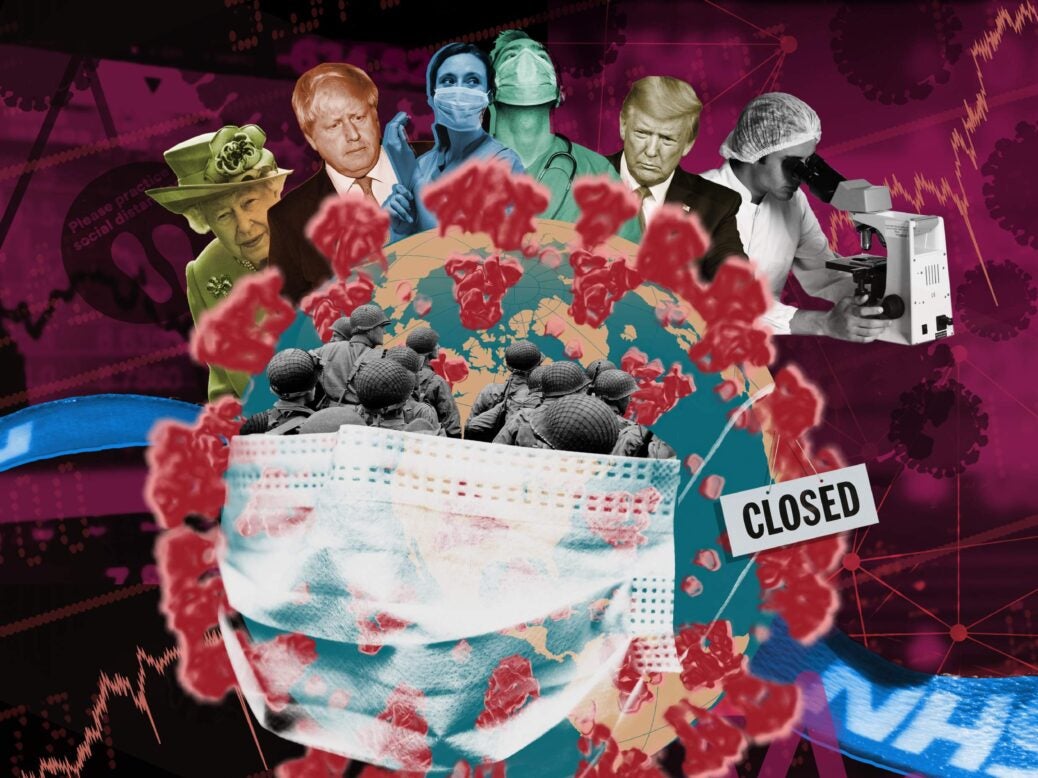
Coronavirus has changed the rules of the game: the neoliberal, Thatcherite-settlement is dying
In a matter of weeks, the world as we know it has been overturned by a seafood market. The coronavirus pandemic has already changed many aspects of regular life, but as we explore in this special issue, its lasting impact will be more profound. Many questions remain over the extent of the fallout, but it is already clear that this pandemic has brutally exposed underlying health issues in the neoliberal world order.
After more than 40 years of globalised free markets, the neoliberal Thatcherite-Reaganite settlement was already creaking before this pandemic.
Widening inequality, whether in wealth, income or between generations and countries, has become a theme of contemporary economic life. Millennials – born in the bright afternoon of the neoliberal heyday – are set to be the first generation in history to end up poorer than their parents, while the poorest countries are mired in endless cycles of debt. In December the World Bank cautioned that the record increase of global debt should ‘concern us all’. If the so-called ‘golden era’ of financialisation was brought to a close by the 2008 financial crisis, then the decade that followed – of slow productivity, rising public debt, austerity and sluggish GDP growth – has marked neoliberalism’s last stand.
Indeed, the speed and severity of this present crisis obscures what is unfolding at a structural level. The neoliberal logic of markets and profits – a dogma that has come to encompass almost every aspect of modern life – is unravelling, and with it the orthodoxy of shareholder-first capitalism.
Milton Friedman, one of the architects of neoliberalism, once claimed that ‘the government solution to a problem is usually as bad as the problem’. Right-thinking people are now beginning to question this seriously for the first time in half a century. Indeed, the mantra at the heart of neoliberalism, Margaret Thatcher’s 1987 claim that ‘there is no such thing as society’, has even been rebuked, if obliquely, by Boris Johnson himself.
Two years ago, Mrs Thatcher’s chancellor, Nigel Lawson, told Spear’s that ‘the sense of injustice is real’ when it came to inequality and lamented ‘grossly’ overpaid executives. He called for a turnover tax on businesses to stop them avoiding paying taxes. The debate has been waiting in the wings.
Now, thanks to coronavirus, neoliberalism is on a ventilator. Whether it recovers or not remains to be seen. Either way, it will be impossible to return to business as normal. In what is already the largest expansion of the state since the Second World War, governments have shown themselves to be capable of acting quickly, decisively and at scale.
In the words of chancellor Rishi Sunak, they have committed to ‘do whatever it takes’. And they need to. In the process, governments in the West have shouldered trillions of dollars-worth of debt, making tax rises tomorrow a certainty.

Credit: National Archives and Records Administration
Spear’s readers – and quite likely their children – should brace themselves for this new, higher-tax future. Former chancellor Alistair Darling has said it will take a generation to repay the latest debts, which will take British national debt above 100 per cent (and then some) for the first time since 1963. The effects of this are already reshaping the political landscape in a wider sense.
No longer can ambitious spending plans be rebuffed by stressing fiscal responsibility alone. The ‘magic money tree’ has finally been discovered. Meanwhile, new needs have been recognised during this crisis. As the prime minister has discovered, the NHS is the ‘beating heart’ of our national life. We can expect the health service and the other important social services to fall under the spotlight of a renewed national focus. Nor can it be reasonably claimed that the market is a more rational and efficient actor than the state. Nation-states have already demonstrated that they can tear up the neoliberal rulebook at will. Markets are powerless to stop this.
This is being realised across the world, where the need for internationalism and cooperation is being slowly rediscovered as the G20, so dysfunctional for so long, commits to coordinate closely on health, economy, trade and international co-operation.
This was perhaps summed up best by Emmanuel Macron, who predicted: ‘This period will have taught us a lot. Many certainties and convictions will be swept away. Many things that we thought were impossible are happening. The day after when we have won, it will not be a return to the day before, we will be stronger morally. We will draw the consequences, all the consequences.’
The rules of the game have changed. The neoliberal, Thatcherite-settlement is dying. Expect whatever follows it to bear the mark of this crisis.
This is the leader from the latest edition of Spear’s, out this week. To buy a copy and subscribe, click here
Read more
Our doctors and nurses are the ‘new Few’
‘Don’t panic’ – wealth managers react to Covid-19
Inside the latest edition of Spear’s: How the Covid-19 pandemic will transform our world






